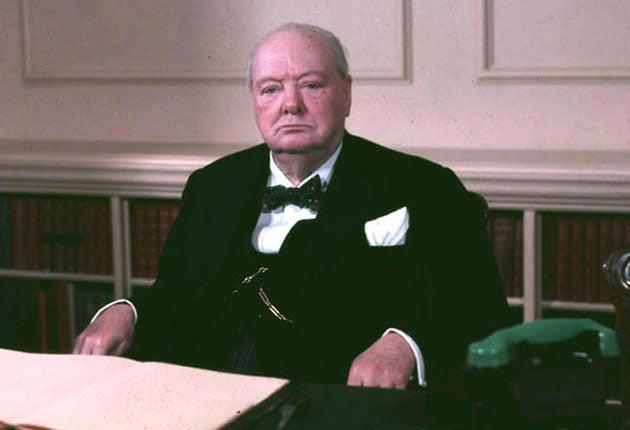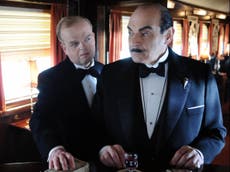The Independent's journalism is supported by our readers. When you purchase through links on our site, we may earn commission.
The Top 10: Extremely Long Political Careers of People Who Were Not Monarchs
Joe Biden joins a pantheon of rulers who took their time


Your support helps us to tell the story
This election is still a dead heat, according to most polls. In a fight with such wafer-thin margins, we need reporters on the ground talking to the people Trump and Harris are courting. Your support allows us to keep sending journalists to the story.
The Independent is trusted by 27 million Americans from across the entire political spectrum every month. Unlike many other quality news outlets, we choose not to lock you out of our reporting and analysis with paywalls. But quality journalism must still be paid for.
Help us keep bring these critical stories to light. Your support makes all the difference.
In a change to the advertised programme, thanks to Spinning Hugo for this suggestion after Joe Biden was declared the next president of the US, 50 years after he first won political office, as a council member for New Castle county, Delaware, at the age of 27 in November 1970.
1. Augustus. Roman senator for 16 years before becoming the first emperor, who then ruled alone for 41 years, until his death in 14 AD at the age of 76, a 57-year run. Nominated by James of Nazareth.
2. Talleyrand (Charles Maurice de Talleyrand-Périgord). Became agent-general of the clergy at the age of 26 in 1780, then a bishop and a member of the national constituent assembly, serving Louis XVI, the revolutionary Directory, Napoleon, Louis XVIII and Louis-Philippe, for whom he was ambassador to the UK until 1834, a career of 54 years that covered some dramatic changes of government. Spinning Hugo’s opening nomination.
3. Klemens von Metternich. Started as a minister to the elector of Saxony in 1801; ended as chancellor of the Austrian empire in 1848. A mere 47-year stint. Thanks to Gerry Lynch and Ben Milne.
4. Viscount Palmerston. A minister almost continuously (thanks to defecting from Tory to Whig in 1830), from 1809 to 1865, a 56-year span. Foreign secretary three times for 15 years altogether; prime minister for nine years in two terms. Nominated by David Herdson and Robert Saunders.
5. Charles Pelham Villiers. Longest serving MP (for Wolverhampton): 63 years from 1835 until his death at the age of 96 in 1898. Liberal and later Liberal Unionist, appointed to the cabinet by Palmerston, serving for seven years as president of the Poor Law Board, 1859-66. Thanks to Chaminda Jayanetti and Resjudicatamyfoot.
6. Winston Churchill. An MP for 64 years, 1900 to 1964, a cabinet minister over a longer span, 47 years, than Palmerston, starting as president of the Board of Trade in 1908 and ending as prime minister in 1955. Nominated by Dinah Rose.
7. Anastas Mikoyan became a member of the Politburo of the Soviet Union in 1923 under Lenin, survived and prospered under Stalin, served under Khrushchev and was still chairman of the presidium of the supreme soviet for a year under Brezhnev, 42 years later, until 1965. “That takes some political skill,” said Geoffrey Eagland. Also nominated by Peter Dutton.
8. Konrad Adenauer. First elected to Cologne city council in 1906, becoming mayor 1917-33 (also president of the Prussian State Council 1921-33); he was then postwar chancellor of West Germany 1949-63, and remained leader of the CDU until 1966, when he was 90. Nominated by David Herdson and Fergal O’Shea.
9. Kenneth Clarke. Minister over a 40-year span from 1974, a whip in Ted Heath’s government, to 2014, minister without portfolio in David Cameron’s. For party-political balance a co-nomination with John Morris, minister in three Labour governments, joining Wilson’s in 1966 and leaving Blair’s as attorney general in 1999. Thanks to Jim Parr, James Heale and John McTernan.
10. Jerry Brown, governor of California, for two terms 1975-83, and two more 2011-19, aged 37 to 80, a 43-year span with a 28-year gap in the middle. He was exempt from the two-term limit, having served before it became law in 1990. Thanks to Patrick Maguire.
Next week: Uses of repetition by leaders, such as “There are some of us who will fight, and fight, and fight again, to save the party we love,” by Hugh Gaitskell.
Coming soon: Bands named after films, such as All About Eve and They Might Be Giants.
Your suggestions please, and ideas for future Top 10s, to me on Twitter, or by email to top10@independent.co.uk


Join our commenting forum
Join thought-provoking conversations, follow other Independent readers and see their replies
Comments